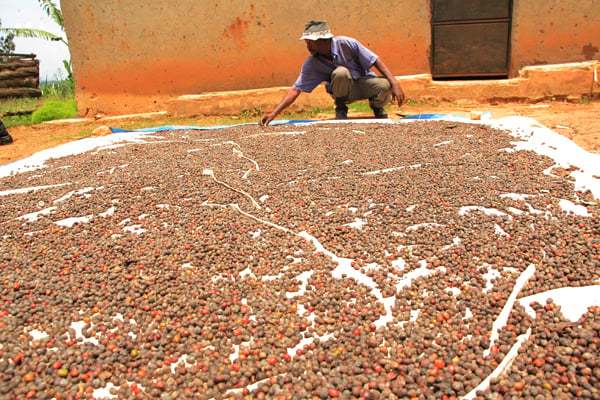Rescue farmers to avert food insecurity

Karamojong women sort soya beans. Food insecurity to worsen in Karamoja, a new study has warned
What you need to know:
The issue: Climate change
Our view: The voices of these farmers this week reminds us that we need to move fast. Otherwise, climate change is going to leave Uganda food insecure.
After weeks of scattered rains across the country, Uganda National Meteorological Authority (UNMA) in late February gave a green light to farmers to start planting. This was after sending a warning weeks earlier to farmers not to rush to plant crops, saying the rains being experienced in January were expected to reduce.
Farmers heeded the weatherman’s late February call, and many sunk millions of shillings in clearing gardens, buying seeds and planting. But a month later, the same farmers are now desperate because of the massive crop failures. Shortly after burying seeds in their gardens, the rains dried up.
This newspaper this week highlighted the frustration of farmers against unpredictable rain patterns. The first major rainy season is normally between March and June, but the trend has since changed due to the negative effects of climate change, making it difficult for farmers to effectively prepare for planting.
All this is being blamed on climate change, a phenomenon that is challenging our civilisation today. As a result of this long-term change in the average weather patterns that is causing havoc around the globe, Ugandans have been affected greatly.
Our weather patterns have overtime become unpredictable with shorter or longer rains and harsher droughts. As some seasons present with prolonged heat, leading to death of both crops and livestock, other seasons have prolonged rains that have led to disasters such as landslides and flooding.
As a result, government came up with the Uganda National Climate Change Policy. Despite being launched in April 2015, many of the challenges it seeks to address still remain a pain to the average farmer.
Just like the plight of the farmers interviewed this week shows, the policies are yet to be felt on the ground. Farmers are desperate and seem to have no one to turn to after losing acres of crops and hundreds of livestock.
In its policy response, government promises to “develop innovative insurance schemes (low-premium micro-insurance policies) and low interest credit facilities to insure farmers against crop failure due to droughts, pests, floods and other weather-related events”. Had it been deliberately promoted, farmers would not sound as desperate as they do today.
Government also promised to promote irrigated agriculture, but this looks to be a preserver of only a few elite farmers. So goes other promises such as promoting highly adaptive and productive crop varieties, encouraging agricultural diversification and supporting community-based adaptation strategies, among other responses.
The voices of these farmers this week reminds us that we need to move fast. Otherwise, climate change is going to leave Uganda food insecure.
Our commitment to you
We pledge:
- To be accurate and fair in all we do.
- To be respectful to all in our pursuit of the truth.
- To refuse to accept any compensation beyond that provided by Monitor Publications Ltd. for what we do in our news gathering and decision-making.
Further, we ask that we be informed whenever you feel that we have fallen short in our attempt to keep these commitments.




